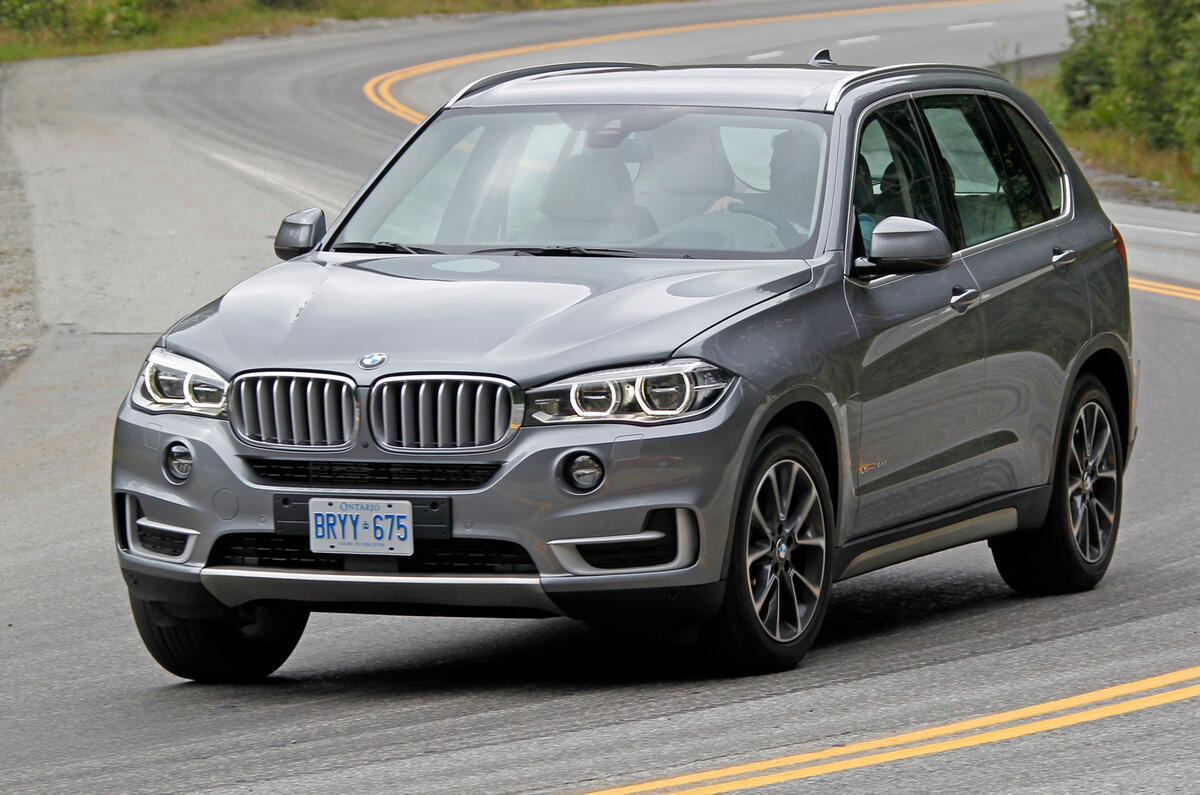I drove the new BMW X5 the other day, and there was nothing about it to surprise. It looked much the same. It drove much the same. It provided the same cabin ambience and even smelt much the same. But, we shouldn’t be surprised at this lack of novelty, because the X5 is a big success.
BMW has sold 1.3 million of the first two iterations of this car, which debuted in 1999. It’s a car that earns BMW good margins according to board member Herbert Diess and also launched the entire X-model sub-brand for BMW.
So this is a car that it cannot afford to get wrong and like VW and its Volkswagen Golf, a car now best-known for staying the same, BMW has found a formula with the X5 that it’s probably best not to meddle with. Striking automotive gold like this is hard, which is why the planet’s smash-hit cars tend only to progressively evolve, and without deviating from their essence.
Besides the Volkswagen Golf – and its 2013 World Car of the Year title is further confirmation of a winning formula – we can number the BMW 3-series, the Mercedes S and E-classes, the Ford Focus and the Range Rover among the many that have found the right groove. And all of these are notable for their product consistency from one generation to the next.
The downside, if you’re a car nut, is that such success breeds unremarkable conservatism. If you like boldly adventurous styling and radical innovation in your cars, you should probably look elsewhere. But given the huge investment needed to launch a new car and the difficulty of making a profit on it, this is a caution that it’s easy to understand.
So unless this latest, well polished BMW X5 faces headwinds caused by unexpectedly departing buyers, we can assume that the fourth generation, out in six years' time, will serve up much the same recipe.
What it doesn’t mean is that BMW has turned risk-averse, as the i3 and i8 prove.




Join the debate
Add your comment
Just History & Respect for Purchasers Investments
BMWs Production cycles for their vehicles goes back to virtually all post WWII Models.
Whereas the Japanese car manufacturers produced significant styling updates on a 1-2 yr cycle, that did not simply accelerate depreciation, it also caused significant "loss of face / prestige" among owners of Japanese models that had been superseded over a shorter ownership period.
The German manufacturers, particularly in the 60s, 70s, 80s and 90s were more concerned with protecting the investments and image of their customers over much longer design cycles.
In the case of BMW, the average design cycle was ten years.
In the case of the X5, the cycle has involved 3 designs, that are all evolutionary in accordance with the company's design history.
For all those critical commenters that do not value the investment that they have made in their transport, you are welcome to purchase Korean or Chinese.
Even the Japanese have lengthened their design cycles almost to the same extent as the Germans. (Look at the Honda Accord now running a 5-6 yr cycle up from a 2yr Design cycle in early 80s)
Depreciation
The point that is often missed in this desire for redesign is that major cosmetic changes make the previous version look old quickly. By maintaining the look VW, Audi and Porsche safeguard the residual values on the stock of cars on the road. A five year old golf looks like a new golf so is more appealing to the 2nd hand buyer. This really helps in shifting new metal as part ex offers can be much higher and the cost to change is much more acceptable. New car discounts can be kept to a minimum and lease costs are low. If VW or Audi now took a major shift in design it would devalue the old fleet in only a couple of years with a real impact on their new car sales.
That's my theory anyway.
Depreciation
Never understood depreciation. I suspect it can be heavily influenced by "wheezes" like charging heavily for "extras" but calculating depreciation on the price before this or that item was added to the original bill. The real reason for lack of change in styling is lack of imagination, both on the part of the makers and the customers who are attracted to their products.
Autocar wrote: What it
they're completely and totally risk-averse with their core products, no different from Coca-Cola. What the i3 and i8 are is BMW's Tab Clear and C2: mere dips of the toe to see what left field ideas might make money. If they flop, that's the last you'll hear of them. If they take off, you can be sure the recipe won't ever change.